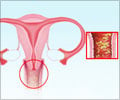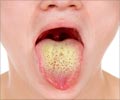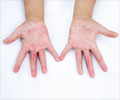![Quiz on Yeast Infection]()
Introduction:
Thrush is a
yeast infection that can occur in any part of the body. It is most commonly seen at the opening of the vagina (vulva). You may acquire white, raised, cottage cheese-like lesions (spots) in the infected areas. Thrush or yeast infection occurring in the oral cavity or mouth is known as oral thrush or oral candidiasis; in the esophageal region, it is known as esophageal candidiasis; if it occurs in both the vulva and the vagina, it is known as vulvovaginal candidiasis; and infection in the vagina is known as vaginal candidiasis or vaginal thrush.
There is no doubt that thrush is quite prevalent, but how well do you know it?
Take this quiz to find out:
-
Causes of yeast infection (1✔ ✔Trusted Source
Candidiasis
Go to source)
- Contagiousness of the infection (2✔ ✔Trusted Source
Superficial fungal infections of the male genitalia: a review
Go to source)
- Prevalence of the infection (3✔ ✔Trusted Source
Treatment of vaginal candidiasis with a single oral dose of fluconazole. Multicentre Study Group
Go to source)
- Duration of the infection (4✔ ✔Trusted Source
Vaginal yeast infection (thrush): Overview
Go to source)
- Symptoms (5✔ ✔Trusted Source
Warding Off Recurrent Yeast and Bacterial Vaginal Infections: Lactoferrin and Lactobacilli
Go to source)
- Diagnosis (6✔ ✔Trusted Source
Stubborn vaginal yeast infections
Go to source)
- Prevention (7✔ ✔Trusted Source
Candida infections and their prevention
Go to source)
- Treatment of yeast infection (8✔ ✔Trusted Source
Effect of antibiotic use on the prevalence of symptomatic vulvovaginal candidiasis
Go to source)














